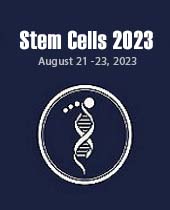Title : Heterogeneity of glioblastoma and enrichment of stem-like cells upon transplantation, chemotherapeutics, and recurrence
Abstract:
Though a rare form of cancer, glioblastoma multiforme (GBM) is a deadly disease with five-year survival rate less than 7%. Despite technological advancements, the tumor inevitably recurs. The concept of “cancer stem cells” has been proposed as one explanation for treatment failure. However, even among supporters, consensus about the properties of these cells has not been reached. Fueled by recent single-cell RNA sequencing studies, cells with different characteristics have been proposed to be responsible for recurrence. We designed and validated a novel mouse model to label neural stem cells, which can be transformed and traced as the GBM cell of origin and conserved as stem-like quiescent cells in full-blown tumors. This model allowed for accurate labeling, isolation, and investigation of quiescent cancer stem cells, which resulted in a transcriptional signature to define these cells. Applying the signature to orthotopic human patient-derived xenografts (PDX) uncovered a quiescent cognate population of cells. Differential gene analysis (DEG) of the different cell populations derived from eight human glioblastoma samples generated lists of signature genes differentially expressed in the different cell types, including a quiescent cancer stem cell population. Further analyses showed that human glioblastoma stem cells are enriched upon serial transplantation, chemotherapeutics, and recurrence, emphasizing the importance of including these cells in future therapeutics.


